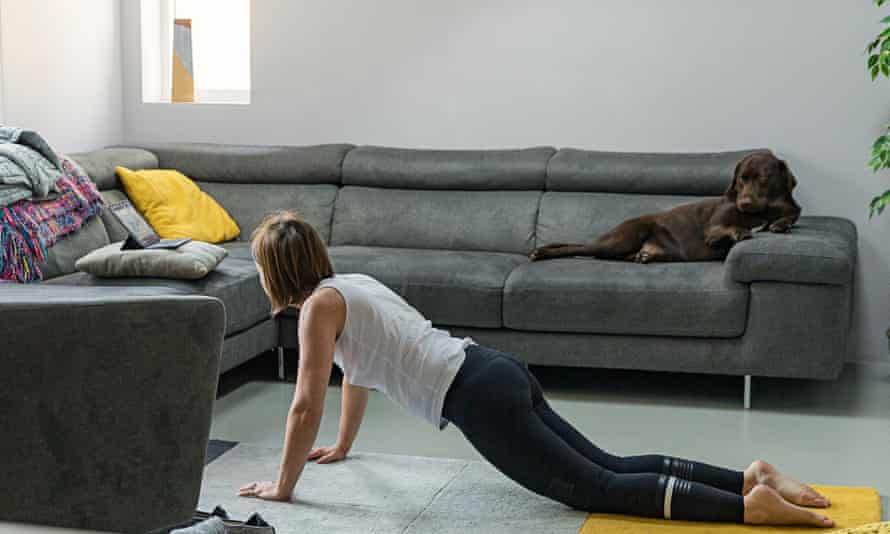The Omicron variant has caused an avalanche of Covid-19 cases in Australia in the past months. While most people who catch the disease experience mild symptoms, many report feeling short of breath and sluggish for weeks afterward.
“It’s normal to feel tired after a viral infection, and everyone’s recovery is different,” says Janet Bondarenko, a senior respiratory physiotherapist at Alfred hospital in Melbourne. “But the severity of your Covid illness doesn’t necessarily predict whether you will have those lingering symptoms.”
The coronavirus can damage various organs, causing ongoing fatigue, says Dr Robert Newton, professor of exercise medicine at Edith Cowan University. “The cardiorespiratory system can’t deliver oxygen to the working muscles efficiently. So what was a light to moderate intensity activity previously feels quite vigorous now.”
Sleep and rest help your immune system to fight the disease but it is critical to start moving again to avoid further weakening of your body about seven days after the major symptoms have disappeared, Newton says.
Exercise increases capacity of muscles, heart and lungs, as well as the numbers of mitochondria – the energy factories within the muscle cells – which counteract the debilitating effects of the infection.
Here is a simple guide that can help you get moving again, but specialist advice from your GP or an exercise physiologist is recommended before you begin an exercise program.
The class: yoga
There is some evidence that the practice of yoga and meditation may help improve lung health, reduce viral susceptibility and speed the recovery from acute respiratory infections thanks to their relaxing effects.
“Controlling stress and anxiety is critical for recovery,” says Newton. “It’s very important to look at strategies such as meditation, mindfulness and yoga to help the body to recover from the coronavirus infection.”
In a paper published in the Journal of Alternative and Complementary Medicine, researchers stated that “certain meditation, yoga asana (postures), and pranayama (breathing) practices may possibly be effective adjunctive means of […] helping to reduce severity of Covid-19 disease, including its collateral effects and sequelae”.
The move: bodyweight exercise
Newton says incorporating resistance training is crucial to reactivate muscles. He says that bodyweight exercises, such as squats and push-ups on your knees, are a good starting point.

As you gradually regain your strength, you can begin to add light weights to your routine, using milk cartons or a weighted backpack.
Light resistance training triggers the production of hormones and cell-signalling molecules such as cytokines that work with the immune system to help the body repair.
The activity: walking
According to Bondarenko, the most accessible physical activity to do after a Covid-19 infection is walking. Especially if you can do it outdoors, Newton agrees.
Anyone can easily control the intensity of their walking, they say.
Beginning with easy, short strolls is ideal, says Bondarenko. Gradually, you can increase the length and the pace of your walks as long as that does not cause you extreme fatigue or leave you feeling breathless.
The hard pass: don’t push yourself
Pushing through when you are still feeling sluggish after Covid-19 will not speed your recovery, says Bondarenko. “It pushes you back a few steps rather than helping.”
She says it is essential to gradually allow yourself extra time to return to your pre-Covid shape. “Everyone’s recovery is different, but over time, everyone gets back to where they want to be.”
“Use your body as a barometer,” says Newton. “Test your perceived exertion to make sure you don’t push the system into overtraining, because that will compromise your recovery.”
from WordPress https://ift.tt/O2GwobV
via IFTTT

No comments:
Post a Comment